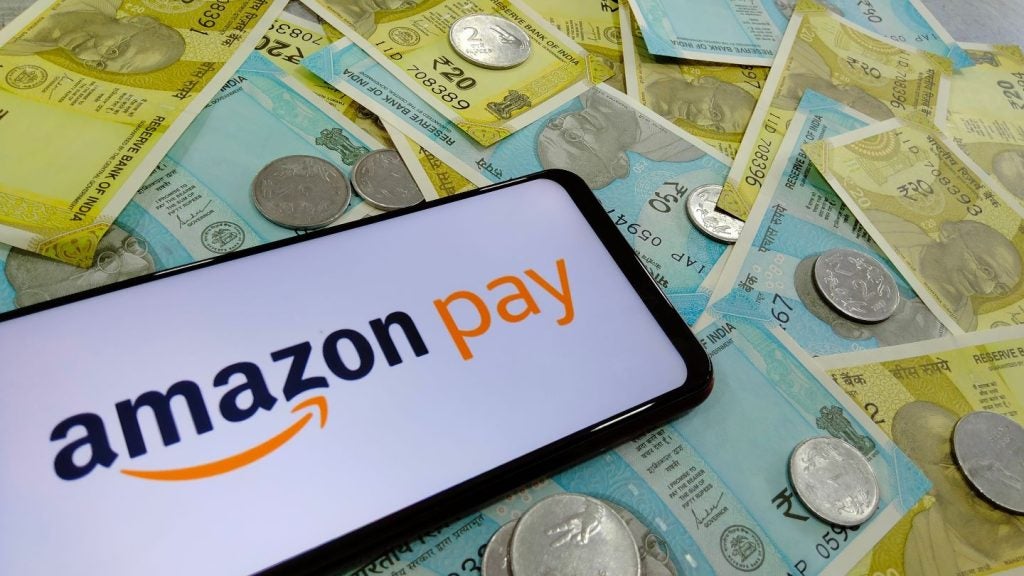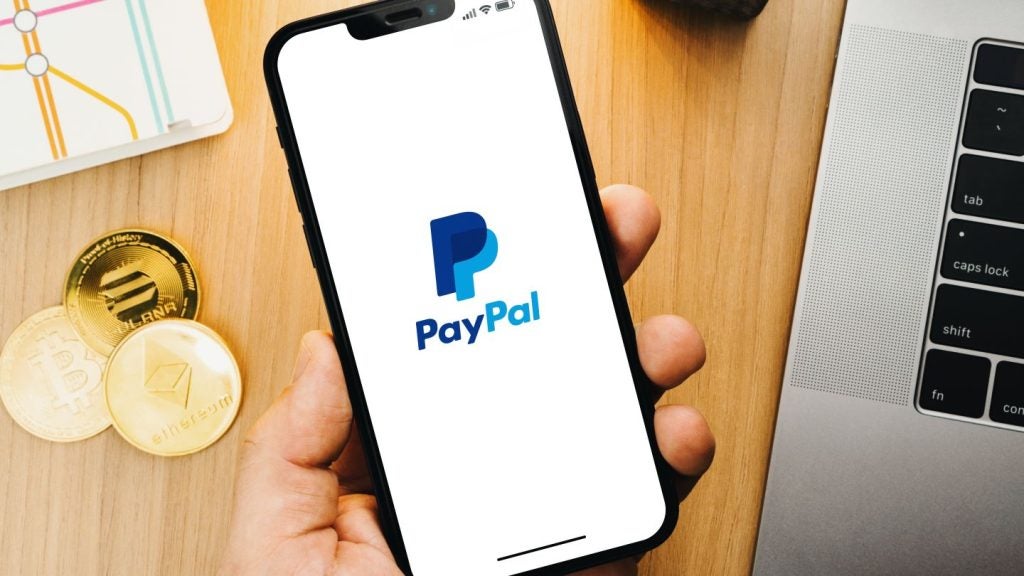Mobile credit card payments from
Cincinnati duo…
Fiserv delivers
blow to online fraudsters…
ePayments aims
to slash transaction costs…
Second French pilot programme
underway…
First Data bolsters prepaid
capabilities…
MOBILE PAYMENTS
Cincinnati duo
Two companies headquartered in the US city of Cincinnati,
electronic payment processor Infintech and telecommunications
company Cincinnati Bell, have teamed up to offer a credit card
payment service, MobileCharge to companies with mobile workforces.
Based on the use of BlackBerry mobile phones MobileCharge enables
credit card payments transactions to be processed anywhere there is
a wireless signal.
is more cost effective than other portable credit card terminals
that require a separate mobile communications plan. In addition the
ability to electronically process credit cards at the point of
service reduces processing costs by 45 percent or more compared
with manual processing. MobileCharge can also be used for inventory
control as it interfaces directly with a company’s accounts
receivable software.
basic version requires credit card details to be entered manually
on a BlackBerry’s keypad and receipts are e-mailed to customers.
The advanced version, MobileChargePro, has an integrated card swipe
and thermal receipt printer.
ONLINE BILL PAYMENTS
fraudsters
US financial technology service provider Fiserv’s CheckFree
FraudNet, an automated online bill payments fraud detection system,
has achieved outstanding results, blocking 21,000 attempted
fraudulent bill payment transactions totalling $287.9 million since
its launch in November 2005. FraudNet was developed by online
banking technology vendor CheckFree which was acquired by Fiserv in
late-2007.

US Tariffs are shifting - will you react or anticipate?
Don’t let policy changes catch you off guard. Stay proactive with real-time data and expert analysis.
By GlobalDataeffectiveness, the US’ largest credit union service organisation
PSCU Financial Services reports that since implementing FraudNet in
October 2007 an overall fraud prevention rate of 96 percent has
been achieved by its members that generates nearly 2.8 million
online bill payments each month.
other attractions. According to Fiserv by automating detection and
prevention efforts for electronic billing and payment, FraudNet
reduces the time and resources required to manage potential fraud
cases to as little as 15 minutes, or $12.50, per case based on a
total cost of $50 per hour. This compares with the industry average
of 49 hours or $2,450 per case. According to Fiserv, FraudNet is in
use by 462 financial institutions, including eight of the top 50 US
banks.
AUTOMATED CLEARING HOUSES
costs
A service being offered by US payment processor ePayments promises
to slash payment processing costs of medical, legal and other
professional firms. Key to the offering, Professional Payment
Services, is the migration of professional firms’ clients from
credit card to automated clearing house (ACH) payments.
50 percent on their credit card fees every month,” said ePayments’
president and chief sales officer, Rod Hill. “If our clients can
work with their customers to accept cheques or cheque account
debits in place of high cost credit cards, it’s a realistic and
achievable goal.”
credit card processing fees of about $300 to $1,000 per month. This
includes 2 percent to 4 percent of each transaction, another fee of
20 cents to 25 cents per transaction and monthly fees and equipment
costs. He added that ePayments can process payments for a flat
monthly rate of $39 with no transaction cost using the ACH network
to electronically process cheques and account debits.
processing software on-site at professional service firms opting
for its service.
CONTACTLESS PAYMENTS
underway
Visa and French bank Banque Populaire have combined forces to
launch a contactless payments pilot project in France based on
Visa’s payWave technology.
participating 4,000 Banque Populaire customers in the city of
Besançon will be equipped with Visa Carte Bleue cards capable of
contactless payments of up to €20 ($30) and conventional
transactions. Technical support for the pilot is being provided by
French financial services technology developer Natixis
Paiements.
France in which payWave technology is being used.
Payez Mobile, is based on the use of near field communications
equipped mobile phones and involves MasterCard, six major French
banks and three mobile carriers.
MERGERS AND ACQUISITIONS
capabilities
US payments processor First Data has announced the acquisition of
stored value gift and prepaid products specialist InComm for an
undisclosed sum. Based on InComm’s 2007 results the deal will add
about $8 billion in retail sales payments processing and net income
of $300 million.
First Data’s US division’s president, Ed Labry, said: “The
combination of First Data and InComm propels us into having a
holistic prepaid product suite that includes banking products,
payroll solutions, closed and open loop gift cards and now expanded
distribution.” Notably, InComm’s president and CEO Brooks Smith
will become the leader of First Data’s Global Prepaid Services
division.
offices in Japan, Canada, the UK and Puerto Rico and in total
provides products and services to more than 145,000 retail
locations.
AUTOMATED CLEARING HOUSES
deposits
US industry body the National Automated Clearing House Association
(NACHA) has launched a national awareness campaign to encourage
greater use of direct deposits for the payment of salaries and
other employee benefits. According to NACHA while three out of four
workers who are offered direct deposit use it there are many
workers who are not offered this benefit, primarily employees of
small businesses.
For small employers with fewer than 100 employees replacing pay
cheques with direct deposits results in a saving of about $7,000
per year while for employees who use direct deposit to split their
salaries or wages into more than one account the saving is about
$300 per year.
all large companies offer direct deposit for pay, very few
consistently offer direct deposit for expense reimbursement, bonus
payments and pension payments.
PAYMENTS PROCESSING
UK
US payments processor Metavante’s acquisition of UK prepaid and
debit card transaction specialist Nomad Payments in January 2008
for $58 million is paying off. UK prepaid card provider Advanced
Payment Solutions (APS) has selected Metavante Technologies,
formerly Nomad Payments, as its sole payments processing service
provider, a decision that will involve transitioning over 200,000
account customers – the biggest move of its kind in Europe to
date.
solution and flexible fee structures that will enable APS to offer
a greater range of pay as you go charging combinations, and
therefore a greater range of future products to our clients,” said
APS’ CEO Rich Wagner. “This is a vital factor in the prepaid card
business, which has tighter margins and more disparate cardholder
behaviour than other debit and credit portfolios.”
cashplus, the UK’s first general purpose MasterCard prepaid chip
and PIN payment card. Cardholders, who can top-up cashplus cards at
20,000 outlets, have loaded £200 million ($390 million) onto the
cards since its launch in 2005.
prepaid card spending in the UK will reach $34 billion by 2010
making it Europe’s largest prepaid market and the fourth largest
market worldwide.
MOBILE PAYMENTS
East
Already having achieved notable successes with its mobiquity mobile
phone banking solution in Asia and Africa, Indian mobile
communications technology developer Bharti Telesoft is set to take
on untapped markets in the Middle East. Partnering Bharti Telesoft
in the venture are Arab Financial Services (AFS), the largest
payment card processor in the Middle East and North African
regions, and Bahrain management consultancy Riyada
Consulting.
AFS’ card issuing platforms that serve over 50 banks and will be
offered as a stand-alone service to financial service providers,
explained AFS’ CEO Shankar Sharma. “We believe that many of our
existing customers will take up the service,” he continued.
strategy to increase its annual revenue four-fold to $200 million
in the next three years. According to the company it “is betting on
newer offerings like mobile commerce for growth.” High on the
agenda is mobile banking. “More people have mobile phones than bank
accounts. It’s a great platform to expand banking services and we
have products for that space. We see a lot of potential,” said
Bharti Telesoft’s CEO Manoranjan Mohapatra.
ONLINE PAYMENTS
option
UK online payments specialist NETELLER has deployed NETBANX
International Payments Gateway (NIPG), a new version of its NETBANX
payments service that incorporates multi-currency payments and
multi-payment option capabilities.
features in our NETBANX service significantly extend our lead over
other payment brands,” said NETELLER’s president and CEO, Ron
Martin.
Dynamic Currency Conversion application that permits online
shoppers to pay in their local currency at the pertaining exchange
rate. In addition NIPG facilitates the use of local and global
payment cards and other local payment options including giropay and
ELV for Germany, iDEAL for the Netherlands, Carte Bleu domestic and
international for France and Carte SI for Italy.
pages to enable merchants to collect payment from consumers in the
language of their preference, including English, French, German,
Italian, Spanish and Welsh.
at the end of 2007, of which 2.95 million were in North
America.
INTERNET PAYMENTS
merchants
US electronic commerce technology vendor CyberSource’s UK unit and
Chinese payment services provider PayEase have joined forces to
offer foreign merchants a simplified route into China’s internet
commerce market.
swift and cost effective integration with China’s over 20 debit
card issuers. This overcomes the current difficulty merchants face
of having to integrate with each issuing bank on an individual
basis, claims CyberSource.
Decision Manager that has the ability to recognise the Chinese
language character set and incorporates rules to automate the
acceptance or rejection of orders. Financial transaction reports
are available in English.
extraordinary opportunity for merchants who wish to expand into the
Chinese eCommerce market,” said CyberSource’s president and COO,
Scott Cruickshank.
POS
stall
Tough economic conditions took their toll on the North American
retail POS terminal market in 2007 with total revenue generated
falling about 7 percent to $5.56 billion, according to research
firm IHL Group.
existing terminals, was also well below levels of around $6.5
billion seen during the period of booming demand between 2003 and
2005.
dominated the POS market in 2007, accounting for $3.8 billion or 68
percent of sales. This was little different from market shares
enjoyed by Microsoft in previous years that have ranged from 69
percent in 2001 and 2002 to 71 percent in 2004 and 2005.
$1.02 million, representing an 18 percent market share. POS
terminals running on the Linux operating system accounted for sales
of $575 million or 10 percent of the market. Notably, Linux
operating systems market share has increased from only about 2
percent in 2001.
MOBILE PAYMENTS
Tanzania
Vodacom Tanzania, in which South African telecommunications company
Vodacom has a 65 percent stake, has launched its M-PESA service
which allows mobile phone-based money transfers.
1.7 million users since its launch in February 2007, M-PESA was
developed by UK telecommunications company VodaFone which has a 50
percent stake in Vodacom.
to revolutionise the way Tanzanians manage money,” said Vodacom
Tanzania’s managing director Dietlof Mare.
16, only 1.6 million currently have a bank account, but more than
7.5 million Tanzanians have a mobile phone.” The largest mobile
service provider in the country, Vodacom Tanzania had 4.1 million
customers in April 2008.
based remittance service between the UK and Kenya has encountered
problems in the UK involving banking, exchange rates and anti-money
laundering regulatory requirements. Trials of the proposed service
in conjunction with US bank’s Citigroup UK unit have been ongoing
since early-2007.
ONLINE PAYMENTS
security
Choice of payments and security are the two paramount
considerations of US shoppers when selecting internet merchants,
and outweigh merchant incentives like rewards and discounts reveals
a study conducted for PayPal by research firm
JupiterResearch.
• 66 percent of consumers prefer online merchants that offer
multiple payment mechanisms;
• 62 percent of purchasers feel more secure when they do not have
to enter credit card information online, even at merchants’ sites
that they trust;
• 61 percent of online shoppers choose sites that offer both credit
and debit card payment options;
• 55 percent of consumers think about which payment methods they
will use before they click on the checkout button;
• 48 percent of all online adult shoppers prefer the convenience of
alternative payment methods;
• One third of online shoppers want to avoid filling out name,
address and credit card details; and
• Only one in eight consumers thinks about how they will pay even
before deciding what to buy.
payment option is the top consideration appears at odds with
PayPal’s parent company, eBay’s controversial decision to offer
PayPal as the only payments option on its Australian website. (see
eBay stirs up a storm in Australian e-commerce market).
SELF SERVICE
self-checkout
Ten percent of consumers that leave a shop without making a
purchase were deterred by having to wait for service at the POS,
according to IBM.
answer to this problem in its new self-checkout kiosk that can be
placed practically anywhere in a shop.
Checkout, which accepts credit and debit card payments, also
enables small businesses to affordably deploy advanced kiosk
technology previously only available to large enterprises.
facilities IBM cited a market study by research firm IHL Group
2007.
respondents had used self-checkout, almost 50 percent had used it
more than five times in the previous years and 72 percent had
readily accepted the technology.
US $230.7 billion on self-checkout transactions at retail stores,
up 28 percent compared with 2007.
ATM
scrapyard
Scrap metal merchants rely heavily on peddlers who in turn have
traditionally demanded cash payment for their wares.
service technology specialist NCR Corporation and scrapyard
services supplier Transact Payment Systems (TPS), teamed up to
create a cashless solution based on onsite ATMs and magnetic
striped cards issued in payment to peddlers by scrapyards. NCR and
TPS have now significantly improved on that solution.
printed receipt that includes an encrypted bar code that can be
read by a scanner-equipped ATM.
made possible by the introduction of its two-dimensional (2D)
barcode reading technology which will be used for the first time in
the US for ATMs in the TPS solution.
scrambled in appearance than the common vertical lines of
traditional bar codes, can hold more information and is
significantly more difficult to copy.
airline industry for passenger boarding passes.
metal scrap valued at $2.36 billion was traded in the US in 2006.
This excluded imported scrap.
BIOMETRICS
security
SmartMetric, a US biometric technology developer, has released what
it claims to be the world’s first practical fingerprint microchip
based sensor for use in credit and other wallet size cards.
dirty or calloused hands, according to SmartMetric.
functional security and identity solution in the world,” said
SmartMetric’s president and CEO Colin Hendrick. “Not only is the
technology reliable, but it simplifies the entire process of
identity authentication since no central fingerprint database is
required. Everything that’s needed is on the card itself.”
effective means of identification, its claim as a world-first could
be disputed by other developers such as Biometric Associates in the
US which produces a similar fingerprint smartcard solution, the BAI
Authenticator.
ONLINE PAYMENTS
off
Not only Australians paying more bills every month – an average of
8.2 compared with 3.4 in 2002 – their payment method is also
changing markedly reveals a survey undertaken by BPAY, an internet
bill payment specialist serving 14,000 businesses.
bill payment with 80 percent of respondents reporting having
regularly paid bills online in 2007, up from 36 percent in
2003.
its service in 2007, a year in which it processed 16 million
payments per month. BPAY has processed more than 1 billion payments
since its launch in 1997.
market is the mail-borne cheque, with only 17 percent of
respondents having regularly used mail bill payments in 2007, down
from 43 percent in 2003.
been halted. Usage as a regular payments means having climbed from
55 percent in 2003 to 72 percent in 2006, eased to 66 percent in
2007.
PAYMENTS PROCESSING
India
First Data’s Asia Pacific expansion strategy has received a boost
with its appointment as a payments processor by Kotak Mahindra, one
of India’s largest financial conglomerates.
India, it calls for the deployment within four months of its
VisionPLUS platform to support the launch of a new credit card and
loan portfolio by Kotak Mahindra Bank.
significantly extended its presence in India, an important market
in which we see real opportunities for growth,” said First Data
Asia Pacific’s president Nigel Lee.
Bank operates 178 branches in 107 locations throughout India.
diverse range of other interests including asset management, life
insurance and investment banking, boasts a total of 4.4 million
customer accounts.







